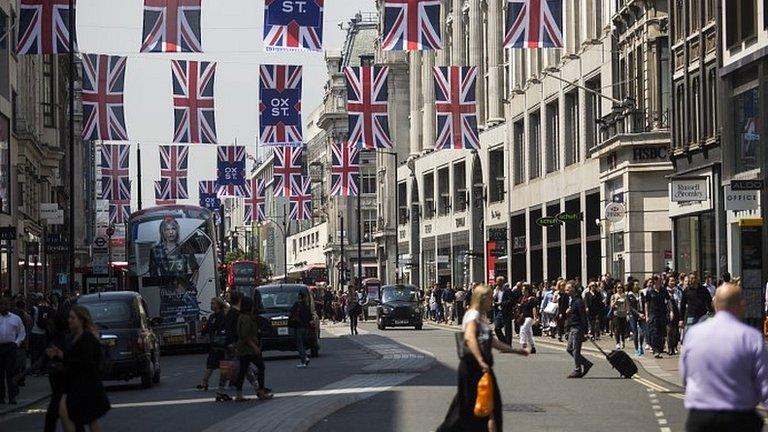Will Watson's comments make a difference?
- Published
Tom Watson speaks to Laura Kuenssberg
Few people would pick a political fight with Tom Watson. Like Jeremy Corbyn, he has his own mandate from Labour Party members, who chose him to be the deputy, alongside the new leader.
So when he speaks, Labour listens.
That's why it was striking today that he chose to suggest that Labour needed not just to listen harder to their natural supporters on immigration, but to suggest that a future Labour government should pursue reforms to the rules that allow EU citizens from other countries to come and live in this country.
He knows that for many of the party's traditional supporters, the changes, or perhaps perceived changes, to their communities that the arrival of many particularly Eastern Europeans have brought have created worries and concerns - so much so that he said "immigration has been the backdrop to every election we have had in Britain" for the last decade.
That's quite some statement.
It is not the party's official position, but he suggested that one of the reasons voters should choose to stay in the EU is precisely because the continent, including other countries where there are similar concerns, needs to take a cold hard look at the way people can move freely around, and if we're not at the table, but want to stay in the single market, we might have to accept the movement of people, without any say over how it works.
The suggestion, he obviously hopes, might appeal to voters who are still undecided about which way to go in the referendum.
As he put it: "I think we have to reassure people that if they vote Remain on Thursday 23 June, that isn't the end of the reform package in Europe. I think a future Europe will have to look at things like the free movement of labour rules".
And tonight, Labour's Yvette Cooper has spelled out some changes to the rules around migration that she believes might also make a difference.
But will it make any difference at this stage in the campaign?
Watson believes that as the EU strains to cope with the migration crisis other countries might, in time, see that the rules on free movement should be updated. But David Cameron came up with fierce resistance from the EU when he tried to get more radical reforms than he eventually achieved in his renegotiation.
And right now, Watson's party leader, Jeremy Corbyn, doesn't seem to be on the same page; it was telling today that his team declined to respond to Mr Watson's suggestions.
And when, as he said, immigration has been a constant backdrop, and concern for voters for so long, with a barely a week to go before the vote, when so many members of the public seem reluctant to listen to politicians at all, it's far from certain that his comments will have much impact.
At the last thought, it has laid down the gauntlet for the Labour Party, on an issue that the party has struggled to confront before.
- Published14 June 2016
